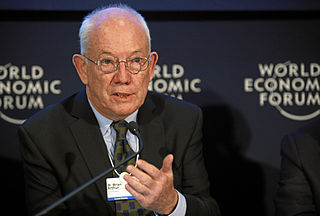A Quote by Gerard Pique
I studied economics with some teachers from ESADE. It's a really good school here in Spain. They helped me to understand a little about numbers, stats, economics, etc.
Related Quotes
I started in the law; and the study of law, when it precedes the study of economics, gives you a set of foundation principles about how human beings interact. Economics is very useful, and I studied economics in graduate school. But without understanding the social and organizational context of economics, it becomes a theory without any groundwork.
My mother and my father taught me to look at the actual problem, not the face of it, not the veneer of it. So for me, I was never - I was impressed that it - racially, I was impressed, right, but now in America it's about economics, and it's been about economics, and honestly, everything's been about economics since I don't want to say the beginning of time, but it's been about economics for a long while.
Anyway that's a large part of what economics is - people arbitrarily, or as a matter of taste, assigning numerical values to non-numerical things. And then pretending that they haven't just made the numbers up, which they have. Economics is like astrology in that sense, except that economics serves to justify the current power structure, and so it has a lot of fervent believers among the powerful
How should the best parts of psychology and economics interrelate in an enlightened economist's mind?... I think that these behavioral economics...or economists are probably the ones that are bending them in the correct direction. I don't think it's going to be that hard to bend economics a little to accommodate what's right in psychology.
I am practical by nature, and I'd heard that being a writer or an artist is a good way to starve! So I was an economics major at Oklahoma State, and then received an M.S. from Cornell in Agricultural Resource and Managerial Economics. I knew if I wanted to write I would do it on my own, but I knew I wouldn't make myself study economics on my own.





































